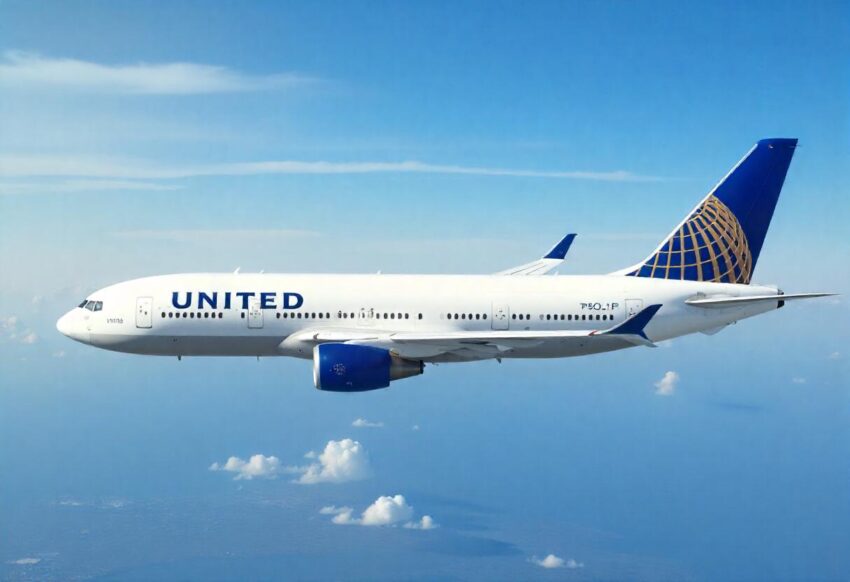Sunday, May 11, 2025

A recent incident aboard a United Airlines flight departing from Chicago O’Hare International Airport has raised serious questions about the airline’s boarding policies and the treatment of passengers in vulnerable situations. A standby traveler, who had already boarded the aircraft, was unexpectedly removed just before departure, leading to a cascade of complications and confusion.
Boarding Pass Issued, But Seat Denied at the Last Minute
On May 2, 2025, two passengers flying on a shared itinerary received boarding passes shortly before departure for United Airlines flight UA1905 to Pittsburgh. Both individuals were cleared to board and took their assigned seats. However, moments before the aircraft was scheduled to depart, one of the travelers was approached and instructed to disembark temporarily to resolve a system issue.
They were told the matter would be quick and that reboarding would be allowed. Once at the gate, however, a separate airline representative informed the traveler that the issue could not be resolved in time and that the aircraft would be departing without them.
Elderly Companion Left Onboard Alone
The situation escalated due to the fact that the passenger’s travel companion—an elderly individual dependent on assistance—remained onboard. Despite requesting to disembark and remain together, that request was denied by airline staff. The result was an emotional separation that left one traveler stranded without personal belongings and the other flying alone without needed support.
To make matters worse, the removed traveler had left a mobile phone in the seat pocket, which staff refused to retrieve. This created an immediate communication breakdown, compounding the distress of being separated during travel.
Inconsistent Reasons Emerge for Passenger Removal
After arrival at the destination, the onboard traveler sought clarification from airline personnel. An explanation was given suggesting that the removal was related to weight concerns for the flight. However, this reasoning was later disputed by another staff member, who indicated no such weight limitations were in effect for that flight.
This discrepancy has fueled criticism over the lack of clear communication and transparency in the decision-making process. Both travelers were part of the same booking, yet only one was denied the right to continue—a detail that has not been adequately explained.
Compensation Below Regulatory Guidelines
Following the disruption, the airline offered a flight credit to the removed passenger. The initial amount of compensation was three hundred and fifty dollars, later raised to five hundred dollars after dissatisfaction was expressed. The traveler was then rebooked on another flight departing later that same day.
However, current regulations set by the U.S. Department of Transportation stipulate that involuntary denied boarding involving delays of one to four hours may warrant compensation equaling two hundred percent of the one-way fare, up to a maximum of seven hundred seventy-five dollars. Additionally, this reimbursement should be provided in cash—not airline credit.
Operational Lapses Under the Spotlight
The incident has drawn attention to a range of operational issues that could affect future travelers:
Delayed Issue Identification: Any system irregularities should be flagged before boarding, not afterward.
Unkept Boarding Promises: Assurances that passengers would be allowed to reboard were not honored, eroding trust.
Neglected Belongings: Reasonable efforts to retrieve essential items like a mobile phone were denied.
Vulnerable Traveler Overlooked: The request of an elderly passenger to disembark was ignored, despite clear dependency.
Insufficient Compensation: The reimbursement provided did not meet legal standards.
Broader Industry Implications
This case highlights broader concerns within the air travel industry about the consistency and fairness of boarding and removal practices, especially regarding standby passengers. Airlines face growing scrutiny over how they communicate with customers, handle last-minute changes, and apply compensation rules.
What makes this scenario especially troubling is that both travelers were on the same reservation and received boarding passes at the same time. If an issue truly existed with their booking or flight load, it should have impacted both passengers equally. That only one was removed suggests a breakdown in coordination and internal processes.
A Reminder of the Human Element in Air Travel
Behind every airline policy is a human story—and in this case, it involved unnecessary separation, stress, and disruption. Travel can be physically and emotionally demanding, especially for those assisting others with special needs. When protocols fail or promises are broken, the consequences can extend far beyond mere inconvenience.
This incident has reignited discussions about the need for more compassionate and transparent passenger handling procedures. As travelers continue to expect higher standards of service, the aviation industry must ensure that reliability, empathy, and accountability are prioritized.






